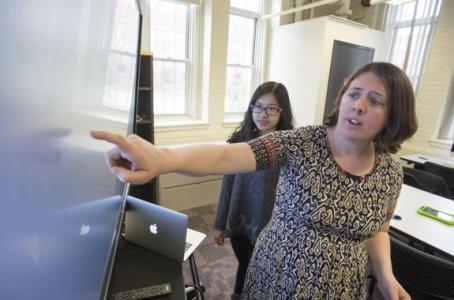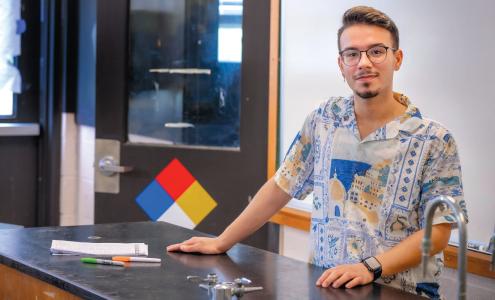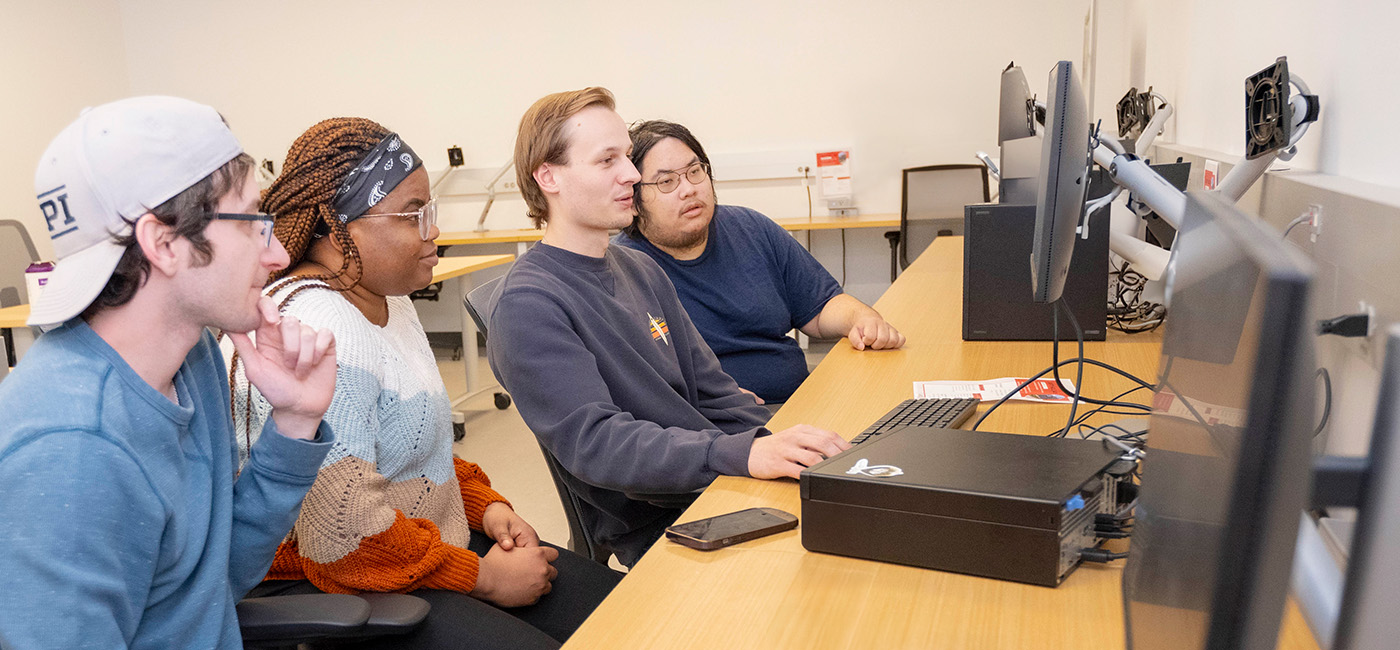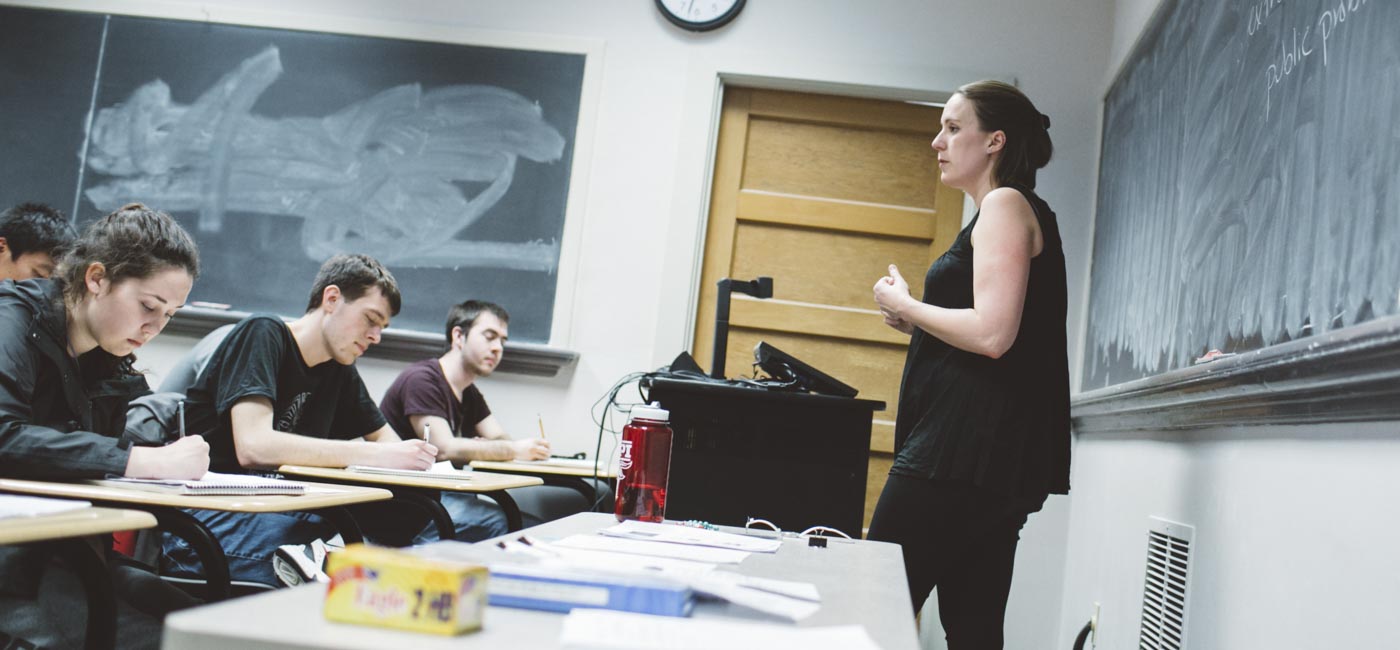WPI’s master’s in Learning Sciences & Technologies is for people who are passionate about improving education. In our highly regarded and well-funded program, you’ll be collecting data in real learning environments, discovering, testing, and implementing groundbreaking advances in how students learn using technology in and out of the classroom.
We’re persistent in our quest to improve learning—how students learn best and how teachers can implement those practices into their classrooms. From software design to classroom environments to curriculum organization and shifting expectations, you’ll consider many influences to make learning practices successful and efficient. If you think education needs to keep up with the advances in technology, you can make big changes with your work here.

Curriculum
Our flexible, personalized curriculum offers highly motivated students the latest courses, technology, and resources that support extensive research, and strong relationships with schools worldwide that help inform our scientific and social approach.
The master’s in learning sciences combines computer science; cognitive, developmental, and educational psychology; and statistics classes to give you a solid interdisciplinary foundation of the social, emotional, cultural, and scientific influences on learning.
Whether you take classes part-time or full-time, you’ll be working with faculty and on project-based teams to see how students and teachers put the methods to use in authentic learning environments.
Find complete learning sciences and technologies course descriptions and degree requirements in the Course Catalog.
Similar Majors
Refer a Friend
Do you have a friend, colleague, or family member who might be interested in a WPI graduate program? Click below to tell them about our programs.
Research
The extensive research experiences provided in the learning sciences master’s encourage one-on-one mentoring relationships with our expert faculty. Our faculty projects are well-funded and highly interdisciplinary; they use a range of mixed methodologies including classroom observations, survey data, advanced quantitative methods, and educational data mining.
No matter your interests, you’ll make discoveries and implement changes that improve teaching and learning. Some recent research projects:
- Using the ASSISTments tool, an adaptive online tutoring system to conduct randomized controlled trials
- Using probabilistic modeling, neural networks, and other data-mining and machine learning methods to understand how students progress through wrong answers to right answers
- Creating games and instructional activities with wearable embodied technologies
- Using Graspable Math, a dynamic algebra system, to analyze student strategies
- Examining student affect, motivation, engagement, and learning within intelligent tutoring systems

The educational technology industry needs the expertise a degree in learning sciences and technologies delivers, and the STEM-focused program at WPI offers expertise in varied areas such as intelligent tutoring, cognitive psychology, and artificial intelligence.

Graduate students in WPI’s well-funded learning sciences and technologies program work with real students and teachers in their classrooms to discover the nuances of real-world needs so they can tailor their research to help solve them.

Varied backgrounds are essential to this field—computer scientists, educators, and social scientists who are passionate about ensuring that educational practices keep pace with technological advances have an opportunity to immediately impact thousands of students with their research.

With a location in the regional hub of educational technology, WPI is in close proximity to more than 150 start-ups that aim to understand and improve the educational process with their technologies.
Although you’ll work in labs to collect, analyze, and mine data and shape platform changes, you’ll also spend time in real K-12 STEM classroom environments, talking with teachers and students and observing how your research projects and technologies can be used to advance teaching and learning.
Graduate Studies Series
Team members from Graduate & Professional Studies host quick and convenient webinars designed to highlight popular topics when starting grad school. Take a deep dive into specific areas of interest such as how to secure funding, how to ace your application, an overview of student services, and more!
Faculty Profiles



Have questions?
WPI's dedicated graduate student support team can help.
Alumni Success Story

Paul Pacheco ’22, MS ‘23
The Burncoat High School teacher brings authenticity to his biology class
Forge Inroads with a PhD in Learning Sciences & Technologies
Are you passionate about keeping our nation’s education system competitive and improving student performance and confidence? Consider earning your PhD in Learning Sciences and Technologies where you’ll be challenged to examine theoretical and applied questions about how to improve educational technology and make teaching easier and complete dissertation work. Future possibilities are endless in the learning sciences and technology field and you can be part of bridging the gap between research, practice, and policy. We have a strong network of local K-12 STEM classrooms, providing our PhD students access to work directly with students, teachers, and technology.
Find a Master’s Program that Matches Your Goals
Not sure a learning sciences master’s is the right fit? We have some related master’s programs that may pique your interest like our master’s in computer science which incorporates core CS competencies with niche research areas like learning sciences, AI, data mining, and more. Advance in this ever-growing field and emerge as a well-rounded, globally aware computer science professional. Maybe you’re intrigued by drawing new insights and articulating findings into solutions for real-world scenarios? Consider our master’s in data science which will challenge you to tackle some of the world’s great challenges. You’ll gain leadership techniques, a deep knowledge of applied mathematics foundations, analysis techniques, and more.


